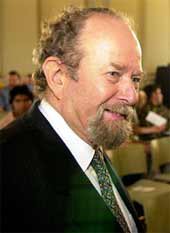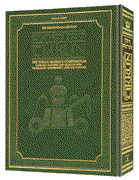Leader of Germany’s Jewish community buried
Some 600 mourners on Thursday attended the funeral of Paul Spiegel, the much-respected leader of Germany's Jewish community who died last Sunday, in the western city of Duesseldorf, his hometown.
Former German chancellor Gerhard Schroeder and the president of the Bundestag, Norbert Lammert, as well as singer Vicky Leandros were among those who paid their last respects to Spiegel.
The president of Germany's Central Council of Jews died in a clinic in Duesseldorf, his hometown, at the age 68 after a long illness.
He was buried in the Jewish cemetery in Duesseldorf on Thursday afternoon.
A memorial service for him will be held in Duesseldorf on May 29.
German Chancellor Angela Merkel, who is currently on an official visit in Washington, is among those expected to attend the ceremony. more: EJP| Leader of Germany’s Jewish community buried: "Leader of Germany’s Jewish community buried"
"Germany is in mourning", reads a headline in Der Tagesspiegel. "Germany has reacted to the death of the president of the Central Council of Jews, Paul Spiegel, with deep sadness," the paper says.
It observes that politicians of all major parties, church leaders and representatives of other groups paid tribute to Mr Spiegel as a "great democrat" and as a man who worked for tolerance and against racism and anti-Semitism.
Die Welt says one of Mr Spiegel's "outstanding feats" was the conclusion of an agreement between the government and the Central Council of Jews in 2003. "For the first time the relationship was given a legal basis," the paper says. It adds that Mr Spiegel is also credited with having made a success of the integration of tens of thousands of Jews from eastern Europe. more

 Kestenbaum Tikkun $53.99
Kestenbaum Tikkun $53.99